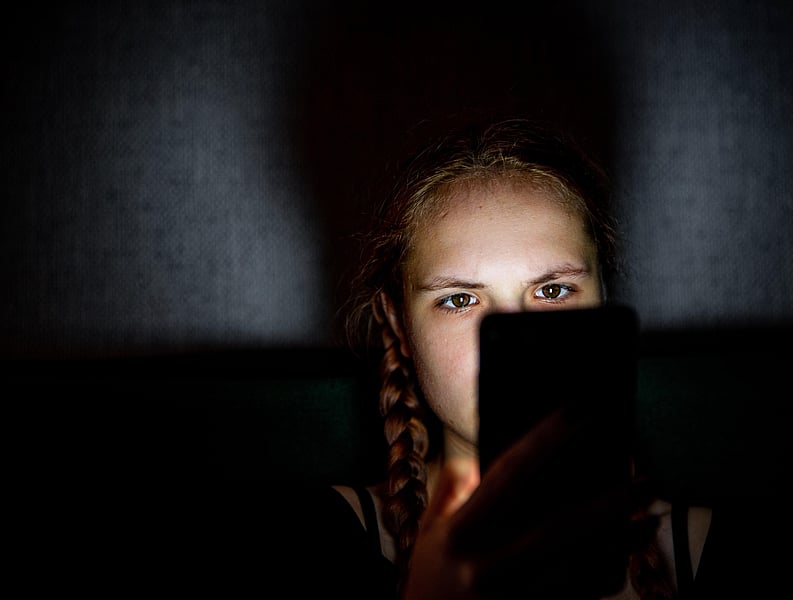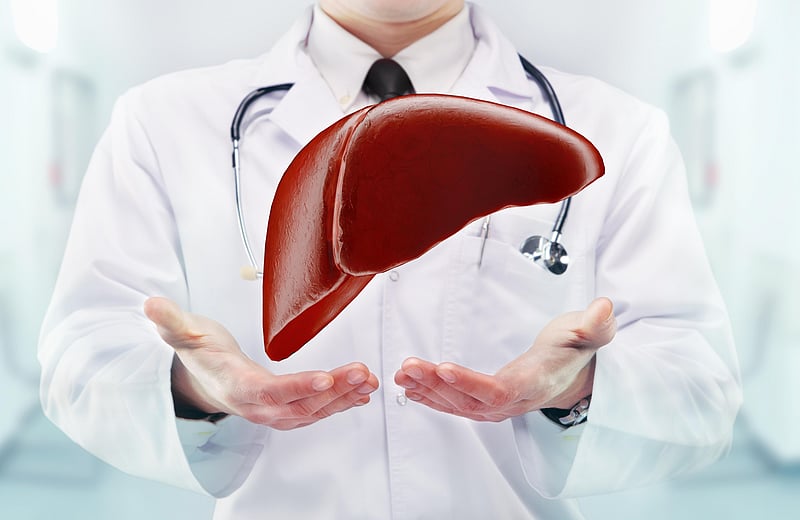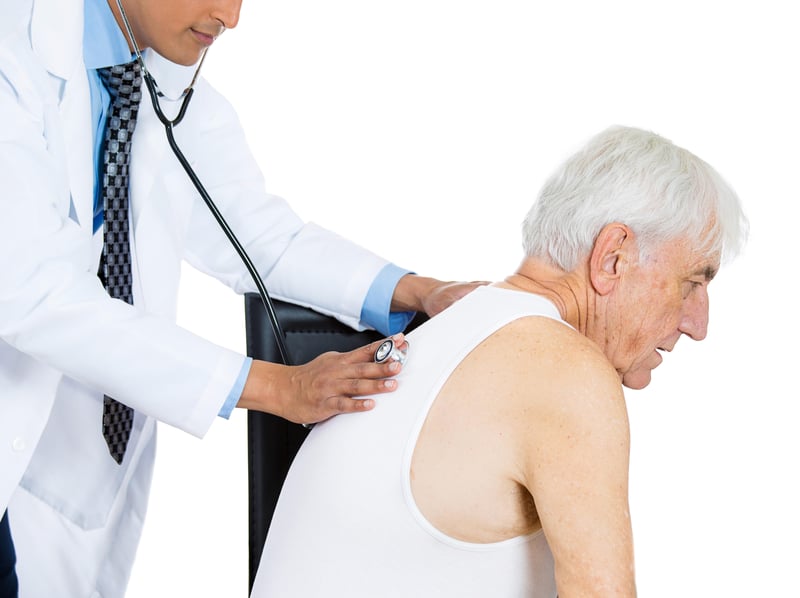Get Healthy!
Results for search "Medical Myths".
Health News Results - 17
The idea of "doing your own research"didn't begin with the pandemic, but new research suggests that those who follow that ideology have been more likely to believe COVID misinformation.
"We had heard the phrase a lot before,"prior to the pandemic, said researcher Sedona Chinn, a professor of life sciences communicat...
- HealthDay Reporter
- Cara Murez
- |
- August 17, 2023
- |
- Full Page
It was a no-brainer for New York City mom Jen L. when a pediatrician suggested that she vaccinate her two sons against human papillomavirus (HPV).
"Before my kids were eligible for the vaccine, I had read up on it to learn about the vaccine and its positives in general, and also to learn if there were any significant side effects," she said. "I have a good friend who had issues from ...
- HealthDay Reporter
- Denise Mann
- |
- May 23, 2023
- |
- Full Page
About 4.5 million adults in the United States have liver disease. If they're looking for information about their condition, they'd be wise to look beyond TikTok, new research suggests.
About 40% of posts about liver disease on the social media platform are false or misleading, pushing claims about fad diets and detox drinks, according to a researcher from the University of Arizona College...
- HealthDay Reporter
- Cara Murez
- |
- May 9, 2023
- |
- Full Page
Alarmed by the increasing spread of medical misinformation, 50 U.S. medical and science organizations have announced the formation of a new group that aims to debunk fake health news.
Called the Coalition for Trust in Health & Science, the group brings together reputable associations representing American academics, researchers, scientists, doctors, nurses, pharmacists, drug and insurance...
- HealthDay Reporter
- Alan Mozes
- |
- March 3, 2023
- |
- Full Page
If you're struggling to find ways to get a good night's sleep, you may not want to use YouTube videos as a resource.
Researchers found what they described as an alarming amount of medical misinformation in YouTube videos about sleep disorders.
"What's tricky is that so much of health information is very nuanced, and a lot of popular YouTube videos have clickbait and appeal to shorte...
- HealthDay Reporter
- Cara Murez
- |
- February 28, 2023
- |
- Full Page
The EpiPen is a known lifesaver when someone with a serious food allergy eats something they can't tolerate.
Yet the auto-injection treatment is greatly underused in the United States, according to a new survey.
Just over half of at-risk adults said they had ever been prescribed the device, researchers found. And more than one-third of severe allergy sufferers mistakenly believe th...
- HealthDay Reporter
- Alan Mozes
- |
- November 14, 2022
- |
- Full Page
Need information about hay fever? Steer clear of YouTube, a new study advises.
Researchers found misinformation about allergic rhinitis, the medical name for the disorder, in a large numbers of posts on the popular video-sharing site.
That's significant, because 7 in 10 patients wi...
- HealthDay Reporter
- Cara Murez
- |
- August 16, 2022
- |
- Full Page
Lung cancer is the leading cause of cancer deaths in the United States, but doctors have had access to a screening tool for nearly a decade that can catch it for early treatment.
Unfortunately, neither of those facts has sunk in for many Americans, according to a new survey from the American Lung Association (ALA).
Only 29% of Americans know that
About one-third of cancer nutrition information on the social media site Pinterest is misleading and posted by businesses trying to sell products, according to a new study.
"Our results revealed a significant amount of misinformation about cancer and nutrition," said study co-author Tracy Crane, an assoc...
- HealthDay Reporter
- Robert Preidt
- |
- May 10, 2022
- |
- Full Page
Misinformation about COVID-19 vaccines abounds, and people with depression are more likely than others to fall for it, a new study finds.
"One of the notable things about depression is that it can cause people to see the world differently -- sort of the opposite of rose-colored glasses...
- HealthDay Reporter
- Robert Preidt
- |
- January 24, 2022
- |
- Full Page
One less excuse to avoid that COVID vaccine: The shots don't affect fertility in either men or women, new research shows, but coronavirus infection could cause short-term fertility problems in men.
"Many reproductive-aged individuals have cited concerns about fertility as a reason for remaining unvaccinated," said lead study author Amelia Wesselink. She is research assistant professor of ...
- HealthDay Reporter
- Robert Preidt
- |
- January 21, 2022
- |
- Full Page
U.S. insurers are paying millions of dollars a year to cover the cost of ivermectin for COVID-19 patients despite a lack of proof the anti-parasitic drug is effective against the virus, a new study finds.
Both the U.S. Food and Drug Administration and the World Health Organization say ivermectin pills -- typically used to treat parasitic infections like worms -- should not be used for COV...
- HealthDay Reporter
- Robert Preidt
- |
- January 17, 2022
- |
- Full Page
"Fights off tumors and alleviates symptoms of chemotherapy," one vape's advertising claims, while another is touted as an "asthma remedy, ADHD remedy, and dementia treatment."
Don't believe the hype.
Despite claims that certain vaping products may alleviate health problems, there's no proof that they do -- and they may even cause health issues, the U.S. Food and Drug Administration ...
- HealthDay Reporter
- Cara Murez
- |
- December 10, 2021
- |
- Full Page
Most people know that sun-sourced vitamin D is good for their bones. So could avoiding the sun to reduce skin cancer risk weaken your bones?
A new study brings a reassuring answer: "Sun-protective" behavior -- wearing long sleeves, seeking shade or using sunscreen -- "was not associated with decreased bone mineral density or increased risk of osteoporotic fracture," the researchers conclu...
- HealthDay Reporter
- Ernie Mundell
- |
- November 18, 2021
- |
- Full Page
The sale of unproven and unapproved stem cell treatments has skyrocketed in the United States, according to a new five-year study.
The study found a fourfold jump since 2016 in the availability of the treatments, which claim to do everything from relieving pain to slowing aging.
People who use these treatments are needlessly spending thousands of dollars and could be putting their h...
- HealthDay Reporter
- Robert Preidt
- |
- November 8, 2021
- |
- Full Page
It's a drug that's been supported by some conservative media figures, but taking ivermectin to treat or prevent COVID-19 might land you in the hospital, a new study warns.
Interest in the drug surged last summer as the highly contagious Delta variant took over the United States. But instead of protecting against the virus, the use of a medicine typically reserved for horses and cattle has...
- HealthDay Reporter
- Steven Reinberg
- |
- October 21, 2021
- |
- Full Page
Misinformation and medical mistrust are major drivers of vaccine hesitancy among U.S. Hispanics, new research shows.
The researchers also found that protecting other family members is an important factor in convincing Hispanics to get vaccinated.
The small study included 22 Hispanic mothers in Oregon and 24 of their children who were in grades 9 to 12. At the time of the study, Hisp...
- HealthDay Reporter
- Robert Preidt
- |
- October 5, 2021
- |
- Full Page
















